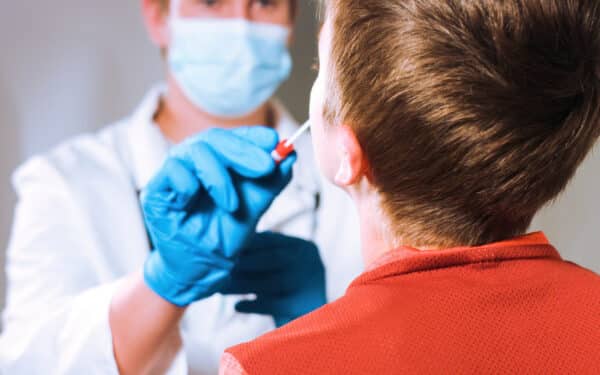Given the ever-expanding catalogue of crises now dominating the headlines – from the rising cost of living, political turmoil in Westminster, to the ongoing post-pandemic economic fallout – oral health is hardly a headline story.
Indeed, even in times of relative peace, most of us probably only think about oral health once or twice or a year, when visiting the dentist, or when a dental problem becomes an acute source of pain and discomfort. Whilst this oversight is understandable, it unfortunately can open us up to a range of more serious issues, including conditions that stretch beyond the mouth.
It has long been a saying amongst dental professionals that “the mouth is the gateway to the body”; meaning that what happens in our mouths has a direct impact on our wider bodily health. Furthermore, as the two share a bidirectional relationship, it is also accurate to say that the mouth can serve as a mirror for the body – reflecting and pre-empting health issues elsewhere.
In recent years, a growing body of research has explored many of the deep and complex links between oral and general health, and the results are surprising.
It is now well-established that patients with periodontitis (gum disease), a chronic inflammatory disease, are at increased risk of developing systemic inflammatory diseases including cardiovascular disease, autoimmune disease, and diabetes. In fact, periodontitis can be classified as a complication of diabetes, and is now known by some as the “diabetes of the mouth”.
In 2021, a study at the University of Birmingham found that patients with periodontitis (gum disease) are at increased risk of contracting various illnesses – including depression and anxiety (by 37%), autoimmune disease (33%), cardiovascular disease (18%), and Type 2 diabetes (26%). Several studies have also offered evidence that periodontal pathogens can cross the placenta and contribute to adverse pregnancy outcomes – including pre-term birth.
In addition, recent studies have also established a direct link between periodontitis and the neurodegenerative disorder Alzheimer’s Disease, which may result from oral pathogens penetrating the bloodstream. Whilst further research is needed here, this emerging evidence is enough to suggest that oral health issues can have a devastating effect on the body if left untreated.
Yet, despite the prevalence and impact of such conditions, oral health remains a neglected area worldwide. This is a great global concern, especially given how avoidable oral disease is in most cases.
Treatment and preventative strategies vary case-by-case. For some, the approach may be more interventionist, whilst for others it may simple be a matter of adopting preventative practices that can eliminate dental plaque and maintain a balanced oral microbiome. However, in most cases, it is clear that focusing on prevention early can save patients considerable difficulties later on.
When I founded The Lifestyle Dentist website in April 2021, my main goal was to promote public understanding of the role that lifestyle and nutrition can play in preventing oral disease and supporting and improving oral health. Since the mouth is both the “gateway” and the “mirror” to the body, I see this effort as a vital stepping-stone towards securing positive general and mental health outcomes as well.
My headline message is simple: there is no quick fix or single strategy when it comes to protecting against oral disease. A healthy mouth can instead be achieved through small, sustainable behavioural changes which become firm health habits over time.
Put simply, in terms of standard dental advice: brush your teeth twice a day, floss or use interdental brushes, have regular dental check-ups, don’t smoke, and maintain a healthy diet.
However, this advice can be broken down further by encouraging simple habits like swapping a sweet snack for a piece of fruit or chewing some sugar-free gum after a meal to help protect the oral microbiome from pathogen proliferation. Reducing alcohol and fizzy drink consumption and not adding sugar to tea/coffee is also sensible, shifting the focus to regular hydration with water.
Maintaining the health of our mouths is not overly complicated, however it does require understanding and consistency. And, as with anything to do with human health, there is no “magic bullet” solution to issues like gum disease and tooth decay.
The good news, however, is that anyone can live a healthy and balanced lifestyle if they are willing to make small, sustainable changes to their daily habits. Doing so can put us on the path towards happier, healthier lives – and help us avoid more severe and costly conditions down the line.
Dr Maria Papavergos is a general dentist and practicing yoga instructor with over 10 years of clinical experience. She founded The Lifestyle Dentist to help spread her preventative philosophy and lifestyle-centred approach to oral health.




